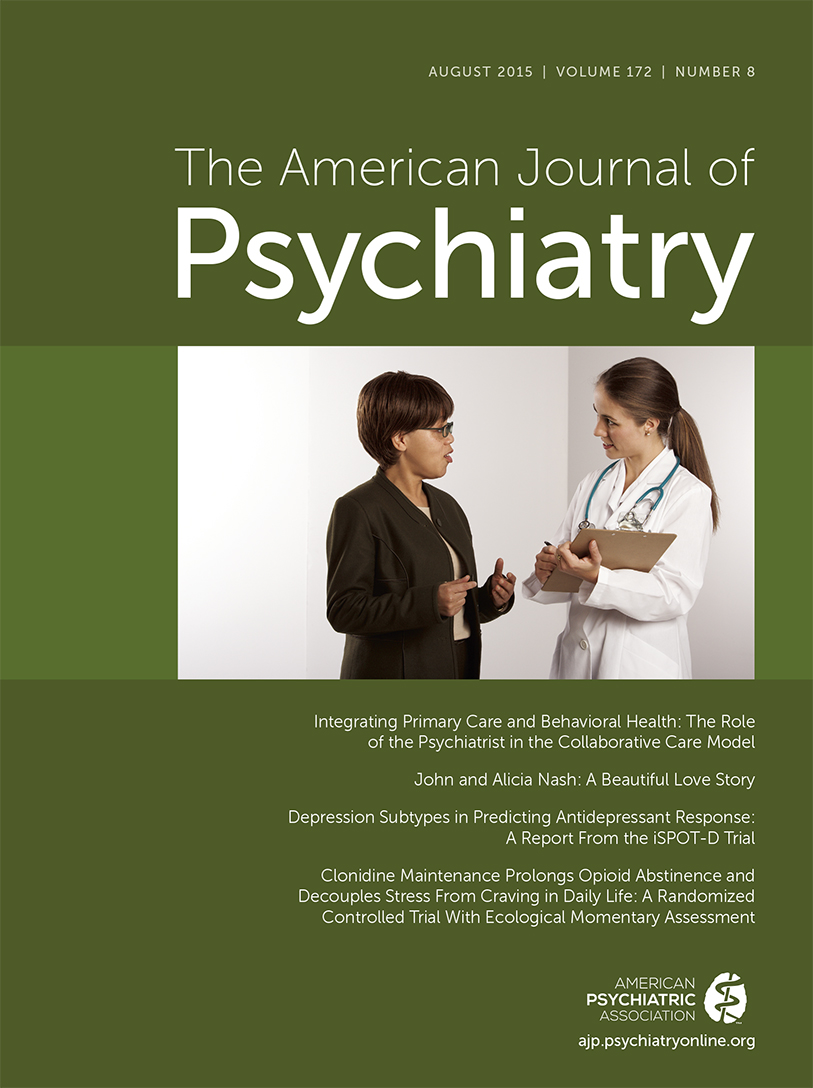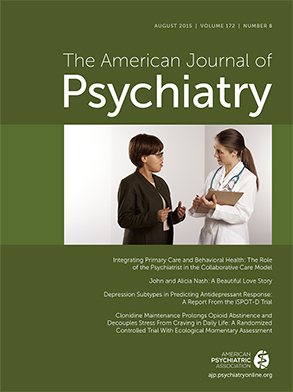I am humbled and challenged to have the privilege of taking on the presidency of the American Psychiatric Association, the oldest medical specialty organization in the United States and the world’s largest psychiatric organization. I am especially appreciative of having the pleasure of following the presidential term of Dr. Paul Summergrad. Dr. Summergrad has worked tirelessly for the American Psychiatric Association and has been a superb leader. He has been creative and innovative, as well as efficient and effective. We all owe him a huge debt of gratitude. I would also like to thank my incredibly supportive family, especially my wonderful husband, Mardi, and my two children, David and Michelle. Without their love and encouragement, I would not be standing here today.
The theme of my presidency during the next year will be “Claiming Our Future.” As psychiatrists, we are the experts in mental health. We have the responsibility to ensure that psychiatrists of the future continue to deliver high-quality care to our patients and have professionally satisfying lives. What type of practice will the psychiatrist of the future have? How will we fit into the new models of care? How will we integrate new research findings into our clinical practices? We must claim our future roles in all of this progress; otherwise, others will define our roles for us!
I will specifically focus on five areas:
1)
The first area is claiming our role in the provision of psychiatric care in the general health care system. The United States is in the midst of health care reform and the development of new models of care. We have fought hard and accomplished our pursuit of parity legislation, but now we must make fair and equal insurance coverage of mental health a reality. There is no health care without mental health care. Every consumer, every politician, and every health care provider should agree with that statement. In fact, let me hear everyone in the audience and on the stage repeat this statement: There is no health care without mental health care. Almost all human beings suffer from mental health issues at some point in their lives. This may be a result of marital or employment stress, traumatic events, problems related to parents or children, or anxiety or depression related to medical problems of ourselves or our loved ones. In order to keep ourselves healthy, mental health care should be available to everyone and provided in an accessible and affordable form. As part of health care reform, we need to stand together with our other medical colleagues and provide necessary mental health care to patients who access the health care system. New models of care include embedding psychiatric services in medical clinics, collaborative/consultative care, including utilizing other mental health disciplines, and use of new technologies such as telepsychiatry. During this next year, one of my presidential initiatives will be to enhance our efforts in telepsychiatry and to develop educational materials and resource documents for our members and governmental agencies.
2)
The second area is claiming our role in the provision of services to people with serious mental illness and to patients who are disenfranchised and marginalized. Both Mahatma Gandhi and Winston Churchill stated that “a society is measured by how it treats its weakest members.” We must work to end disparities in mental health care and ensure that we serve the needs of diverse, underrepresented, and underserved patient populations. This includes the treatment of patients who are in the criminal justice system. It is a national tragedy that so many patients with serious mental illness—some of whom used to be treated in psychiatric settings and others who never received the community-based care that they were promised—are now being incarcerated and treated in prisons and jails. One of the themes of my presidential year will be to highlight this issue, including having a summit and a major event—a marquee event—in April 2016, sponsored by the APA and in collaboration with other organizations and political figures who agree that this problem must be ameliorated. Next month, I am taking members of the APA Executive Committee to San Quentin State Prison. This will be a first step in our renewed effort to focus attention on the inappropriate criminalization of people with mental illness.
3)
The third area is claiming our role in advocacy and ethics. Some psychiatrists question the value of APA membership. I would like them to imagine: What if the APA did not exist? Who would speak for us? The American Psychiatric Association is our voice in legislatures and in the U.S. Supreme Court, through amicus briefs, when mental health issues are involved. This advocacy role will be especially important in the upcoming presidential election year. We also represent the highest ethical standards. For example, during the Bush era of “enhanced interrogations,” the APA developed a position statement that prohibited the participation of psychiatrists, whereas the American Psychological Association allowed such practices. We set the ethical guidelines for how psychiatric care should be provided. During this next year, we will examine our code of ethics and ensure that it is up-to-date and continues to serve as a standard for practicing psychiatrists.
4)
The fourth area is claiming our role in setting quality criteria and in education. In 1844, 13 superintendents of public and private hospitals for people with mental illness met in Philadelphia to set standards for their institutions and to help each other improve the treatment of their patients. This was the beginning of the American Psychiatric Association. The Affordable Care Act requires quality measurement, and payers for health care are insisting on quality indicators because they want to pay for value and not just service. This determination of “quality” is a continuation of what the APA was set up to do in 1844 when the superintendents first met. In addition, one of the important jobs of the American Psychiatric Association is to provide state-of-the-art information to the American and international communities. This is represented by our publications, our annual meetings in the spring and the fall, and various workshops and webinars that are provided throughout the year. The American Psychiatric Association needs to continue to be the source of reliable information about mental health issues for media outlets and the public.
5)
The fifth and final area is claiming our role in research and diagnosis. The APA and psychiatrists are the sources of information related to psychiatric diagnoses and the interpretation of research findings. The most recent DSM is an outstanding accomplishment that involved over a decade of work and input from hundreds of researchers and clinicians who reviewed the world’s literature and decided whether diagnoses are valid and evidence-based. The DSM allows consistent and reliable diagnoses to be made whether someone is sitting in San Francisco, New York, Toronto, or in any other place in the world. As our discoveries elicit new understandings of mechanisms and treatments, we will incorporate them into the DSM. Psychiatrists and the American Psychiatric Association need to continue to be responsible for this document and its revisions. Treatment guidelines are another huge accomplishment of the American Psychiatric Association. Determining the most effective treatments and guiding the practice of psychiatric care is a crucial part of our ongoing role and responsibility as psychiatrists. If we don’t take this on, others, such as government agencies, other professional organizations, and insurance companies, will impose their standards on us!
In closing, I will quote Hillel, a famous religious scholar from 2000 years ago, who posed three questions. He asked: 1) “If I am not for me, who will be for me?” (That is, we must advocate for the future of our profession.); 2) “If I am not for others, what am I?” (That is, we must never forget our obligations to serve the needs of our patients and our society.); and 3) “If not now, when?”
It is clear that we have our work cut out for us. We are fortunate to have an outstanding Board of Trustees, Assembly, and APA Councils, Committees, and Work Groups to help us accomplish our goals. We also have an outstanding administration led by Dr. Saul Levin. Let us look to the future and claim our roles in the care of our patients and in enhancing the mental health care of our society. I am proud to be a psychiatrist and to be the next leader of this organization. Let us begin!! If not now, when?

